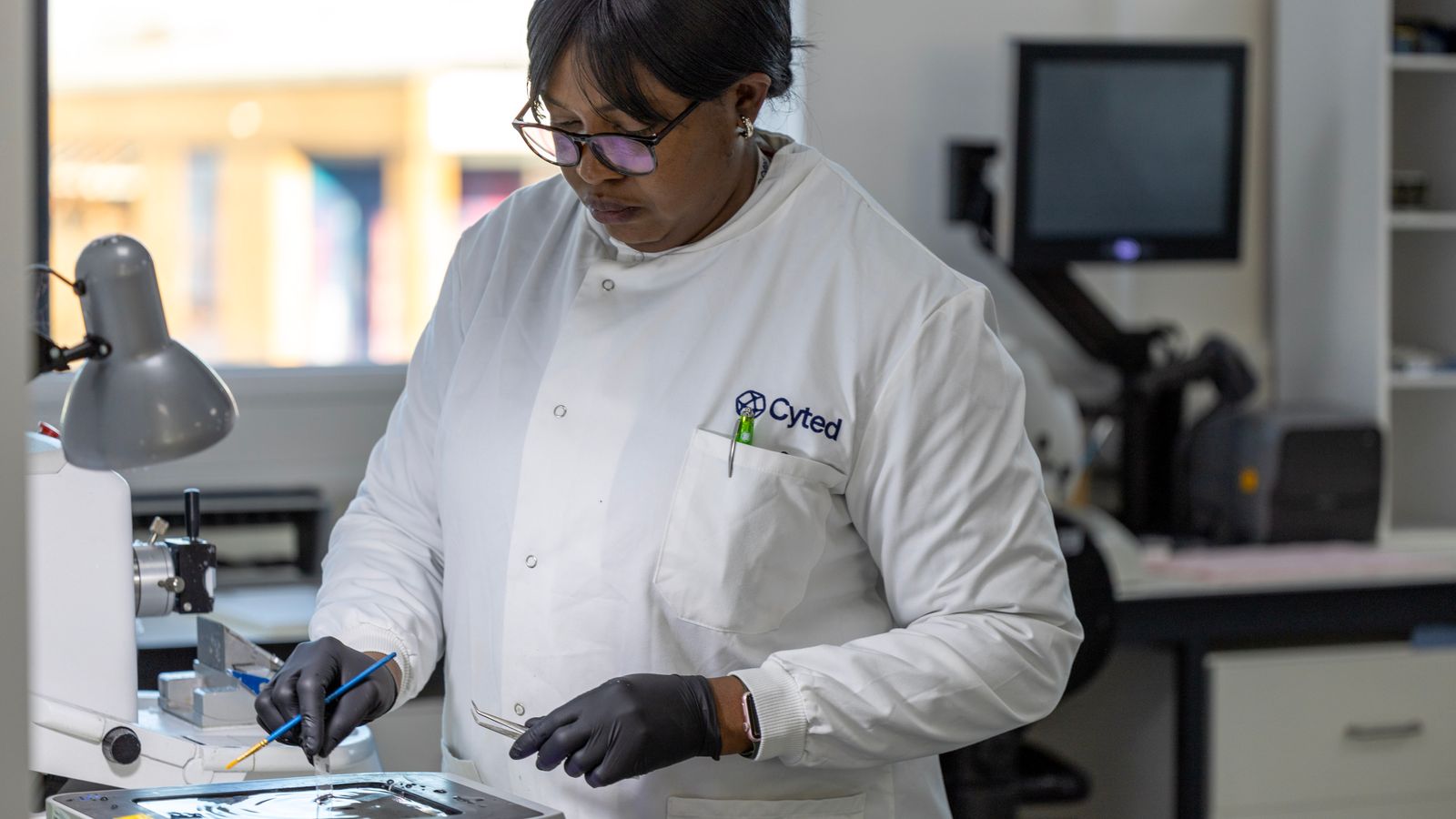Crimes involving knives and other offensive weapons have increased by 5% in the last year, but remain lower than pre-pandemic levels.
The figures come as world heavyweight boxing champion Tyson Fury demanded tougher sentences for knife crime after his cousin was stabbed to death in a “senseless” attack outside a bar.
Rico Burton, 31, was one of two people attacked in the Goose Green area of Altrincham, Greater Manchester, in the early hours of Sunday.
But he is just one of many victims of knife crime. The latest data published by the Ministry of Justice showed that, in the year ending March 2022, the Criminal Justice System dealt with 19,555 cases involving knives.
This compared to 22,183 in the year ending March 2019.
Similar to the period 2014-2019, the most recent increase was driven by a rise in possession of an ‘article with a blade or point’ offences.
This was up 8% on the previous year and now accounts for two-thirds (67%) of total knife crimes.
Knife crime is also responsible for the most cautions and convictions given to 10 to 17-year-olds – 3,373 involved children in this age group, out of a total of 3,490.
The levels recorded varied across England, with Cleveland and Nottinghamshire police force areas seeing the highest levels – at 68 and 57 per 100,000 people respectively.
Surrey and Gloucestershire recorded the fewest offences in relation to their population.
Despite an overall increase in offences, the proportion of those who were jailed has decreased in the last year, with most people being given a suspended sentence.
This could be attributed to possible changes during the pandemic, with the types of cases prioritised through the courts a factor.
It could also be due to a huge backlog of cases – which currently stands at 60,000.
Peter Fahy, the former chief constable of Greater Manchester Police, told Sky News: “We need firmer police action, but there is also real concern about the huge backlog of cases in the courts.
“It’s no good police going out to arrest people if they’re then out on bail and it takes years to get people into court.
“But we also need really good youth projects, things like boxing clubs, working with schools and church groups and other agencies. And it was that sort of joint action enforcement, and working with young people, that for instance brought down the huge level of gun crime in Manchester in the late 1990s, early 2000s.”
Thousands of court hearings were disrupted when COVID forced public buildings to close.
Proceedings were eventually able to resume, with many moving online, but the delays from the pandemic – including technology issues and self-isolating court staff – meant the legal system has yet to return to where it was.
And it could get even worse after criminal barristers in England and Wales voted in favour of strike action.
The Criminal Bar Association (CBA), which represents lawyers prosecuting and defending those accused of crimes in England and Wales, said its members had backed a plan to go on strike “on an indefinite basis” from Monday 5 September.








